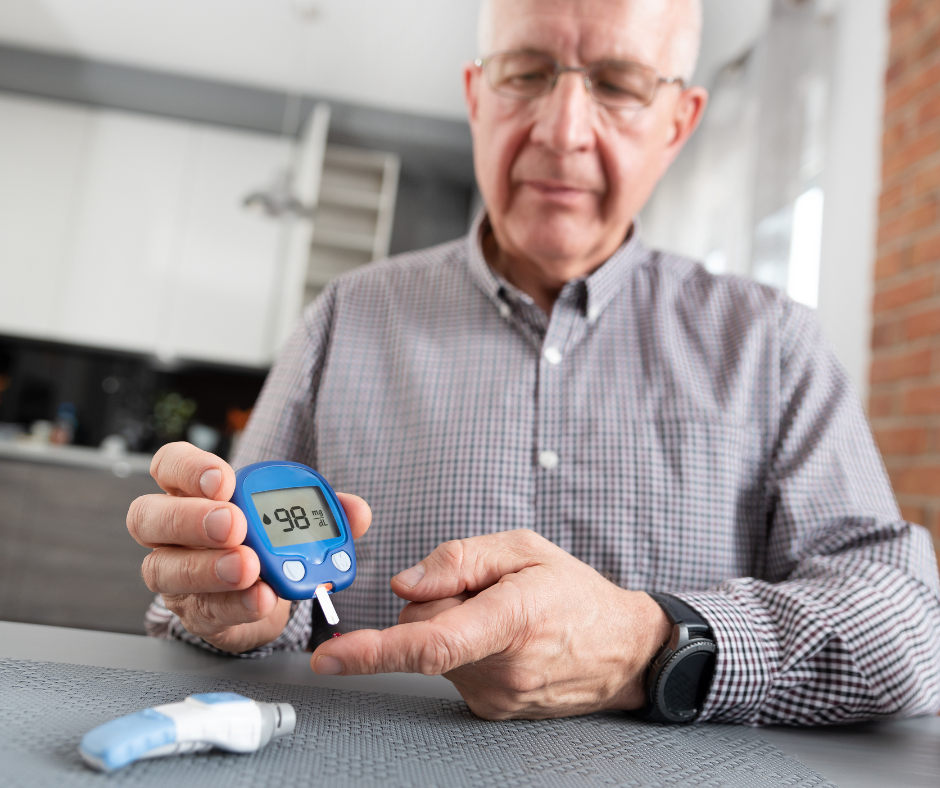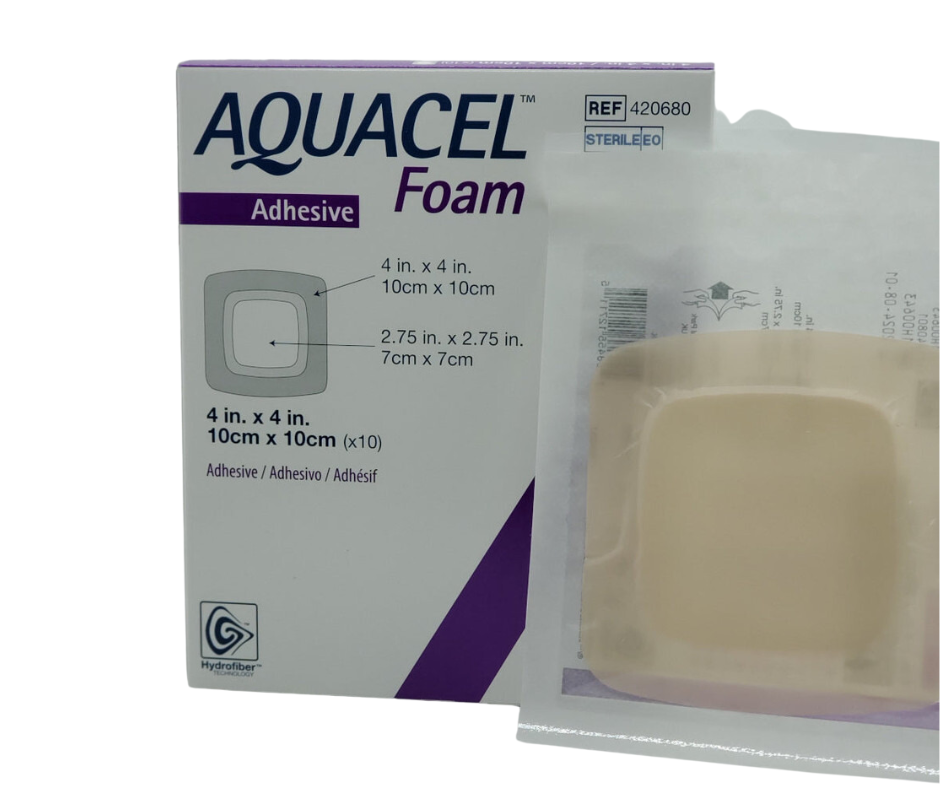Posted by Online Medical Supply Canada on 2024 Jan 8th
Diabetes and Wound Care: The Importance of Choosing the Right Supplies
For individuals living with diabetes, proper wound care is of utmost importance to prevent complications that can arise due to impaired healing. The selection of appropriate wound care supplies plays a significant role in managing wounds effectively and promoting optimal healing. Here is a concise guide to choosing the right wound care supplies for diabetics.

Wound Cleansers:
When it comes to cleaning wounds for individuals with diabetes, gentle yet effective cleansers are essential. Opt for mild, non-toxic solutions such as saline or specialized wound wash solutions to cleanse the wound without causing further damage or irritation.
Antibacterial Ointments:
Diabetics should use antibiotic ointments sparingly and under medical supervision due to their potential allergenicity and resistance development concerns. However, when advised by a healthcare professional, look for products specifically formulated for diabetic skin that offer broad-spectrum antimicrobial properties while being gentle on the delicate skin surrounding the wound.
Non-Adherent Dressings:
Non-adherent dressings are crucial for diabetic wounds as they minimize trauma during dressing changes and reduce the risk of disrupting fragile healing tissue. Look for silicone-based or Telfa non-adherent dressings that are designed not to stick to the wound bed.
Moisture Control Dressings:
For wounds at risk of excessive moisture or dryness, consider using moisture-balancing dressings that can help maintain an optimal environment for healing while preventing maceration or desiccation of the wound bed.
Compression Wraps:
In cases where venous insufficiency or edema is present alongside diabetes-related wounds, compression wraps may be necessary to support circulation and reduce swelling in the affected limb(s).
Offloading Devices or Dressings:
For diabetic foot ulcers, offloading devices such as specialized footwear, cast boots, or total contact casts can assist in relieving pressure from ulcer-prone areas on the foot.
Advanced Wound Care Products:
For more complex diabetic wounds such as deep ulcers or those with signs of infection, advanced products like hydrogels, alginate dressings, foam dressings, or negative pressure wound therapy may be recommended by healthcare professionals to facilitate healing.

Blood Glucose Monitoring Tools:
Since proper management of blood sugar levels is integral to successful wound healing for diabetics, having reliable glucose monitoring tools at hand is essential. While selecting suitable wound care supplies is critical, it's equally important for individuals with diabetes to consult healthcare professionals specializing in diabetic care when addressing any type of wound. A tailored approach taking into account individual medical history and specific characteristics of the wound often leads to better outcomes in diabetic wound management.
Shop the extensive collection of wound care products available at Online Medical Supply Canada.
Click Here To Shop Wound Care Products Now
Need a product you don't see on our site? Send us an email at info@onlinemedicalsupply.ca and we will work to source it for you.
FAQ's
Q: When should moisture control dressings be considered for diabetic wounds?
A: Moisture-balancing dressings are suitable for wounds at risk of excessive moisture or dryness. They help maintain an optimal healing environment while preventing maceration or desiccation of the wound bed.
Q: Can diabetics use antibiotic ointments for wound care?
A: Diabetics should use antibiotic ointments under medical supervision. Look for products formulated for diabetic skin with broad-spectrum antimicrobial properties, but use them sparingly due to potential allergenicity and resistance concerns.
Q: Why are non-adherent dressings recommended for diabetic wounds?
A: Non-adherent dressings minimize trauma during changes and reduce the risk of disrupting fragile healing tissue. Choose silicone-based or Telfa dressings designed not to stick to the wound bed.


